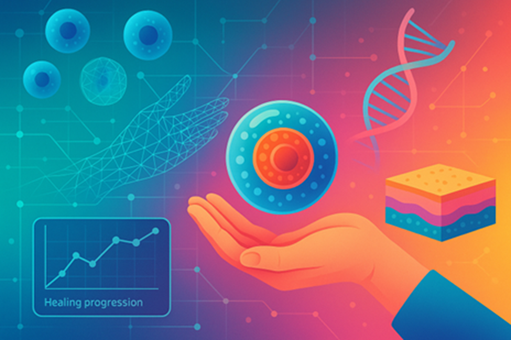Dashboard
- All
-
Following
You must log in
before getting
tailored content. -
Interests
You must log in
before getting
tailored content. - Most liked
- Most viewed

Dr Nathan Bourassa
DentistDr. Bourassa has over 20 years experience treating patients at Artisan Dental of Coeur d'Alene, Idaho. If you are searching for a Dentist near me, you are in luck. Dr. Nate specializes in General, cosmetic and emergency dentistry. Ready to book or learn more? Visit us here today. We look forward to meeting you.
view this profile

Damira Woolston Dental Practice
Damira Woolston Dental PracticeWelcome to Damira Dental Studios, Woolston, where your smile is our passion. We pride ourselves on offering high quality Private Dentistry to help with your dental wellness. Our friendly, highly qualified and experienced team are here to assist you.
Phone Number:
023 8044 8715
Business Hours:
Mon - Thu : 08:00 AM - 06:30 PM
Fri : 08:00 AM - 05:00 PM
Sat : 08:00 AM - 04:00 PM
Sun : Closed
Business Email:
woolston.reception@damiradental.co.uk
view this profile

Damira Ryde Dental Practice
Damira Ryde Dental PracticeWelcome to Damira Dental Studios, Ryde, where your smile is our passion. We pride ourselves on offering high quality NHS & Private Dentistry to help with your dental wellness. Our friendly, highly qualified and experienced team are here to assist you.
Phone Number:
01983 563700
Business Email:
ryde.reception@damiradental.co.uk
Business Hours:
Mon - Fri : 08:00 AM - 05:00 PM
Sat - Sun : Closed
view this profile

Damira Weston Lane Dental Practice
Damira Weston Lane Dental PracticeWelcome to Damira Dental Studios, Weston Lane, where your smile is our passion. We pride ourselves on offering high quality NHS & Private Dentistry to help with your dental wellness. Our friendly, highly qualified and experienced team are here to assist you.
Phone Number:
023 8017 1191
Business Email:
westonlane.reception@damiradental.co.uk
Business Hours:
Mon : 09:00AM - 07:00PM
Tue : 08:00AM - 05:00PM
Wed : 09:00AM - 07:00PM
Thu : 08:00AM - 05:00PM
Fri : 09:00AM - 05:00PM
Sat : 08:00AM - 04:00PM
Sun : 08:00AM - 04:00PM
view this profile

Damira Anglesea Dental Practice
Damira Anglesea Dental PracticeWelcome to Damira Dental Studios, where your smile is our passion. We pride ourselves on offering high quality NHS & Private Dentistry to help with your dental wellness. Our friendly, highly qualified and experienced team are here to assist you.
Phone Number:
023 8077 1544
Business Email:
anglesea.reception@damiradental.co.uk
Business Hours:
Mon - Fri: 08:30 AM - 05:30 PM
Sat - Sun: Closed
view this profile
Directory:
Tags:

|
|
|
|
|
|
|
|
|

Klinik Keluarga Medisha
Affordable Health Checkups Near Me Melaka | Klinikkeluargamedisha.comAffordable checkups at Klinikkeluargamedisha.com in Melaka will help you stay on top of your health. We prioritize your well-being above all else. Reserve your spot today!
view this profile

Crown House Dental Practice
Crown House Dental PracticeCrown House Dental Practice has been Dentist in Sutton Coldfield since 2008. Led by Dr. Kaval Chadha since 2022, the practice offers general, cosmetic, and restorative dentistry, including Composite Bonding, Teeth Whitening, Veneers, and Root Canal Therapy. Dr. Chadha is also a trained Invisalign provider, specializing in clear aligners for teeth straightening. Committed to preventive care and patient comfort, the practice ensures stress-free, personalized treatments.
view this profile

URBN Dental
URBN DentalURBN Dental is a top-rated dental clinic in Houston, offering comprehensive dental care with a focus on comfort, technology, and patient satisfaction. From routine cleanings to advanced cosmetic and restorative treatments, their expert team ensures a healthy, confident smile. Experience professional care in a modern setting. Contact URBN Dental today at +1 713-322-8442 to book your appointment today!
view this profile
From hygiene appointments and teeth whitening to composite bonding, veneers and dental implants, YDS Chelsea provide best in class care backed by open and honest pricing. We will never push an unnecessary treatment and will always put you at the front of every decision we make. Ask about dental implants which include full mouth restorations, all on 4, single tooth and implant retained bridges. This treatment replaces painful, loose, missing and damaged teeth with grade 5 titanium implants topped with a porcelain crown or zirconia bridge. Porcelain veneers and composite veneers hide damaged and discoloured teeth giving you a perfect Hollywood celebrity style smile.
Phone Number:
020 457 16961
view this profile









